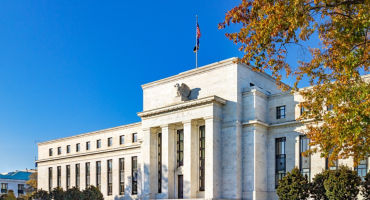- Equity Portfolio Manager
Skip to main content
- Funds
- Insights
- Capabilities
- About Us
- My Account
Our Funds
Fund Documents
Global Multi-Strategy Fund
The views expressed are those of the author at the time of writing. Other teams may hold different views and make different investment decisions. The value of your investment may become worth more or less than at the time of original investment. While any third-party data used is considered reliable, its accuracy is not guaranteed. For professional, institutional, or accredited investors only.
Is the equity market in “recession denial”? It seems like a crazy question to ask given that most markets are down this year – some evidence that many investors are concerned about the direction of the global economy.
Despite widespread fears about a recession this year, the stock prices of many cyclical businesses have experienced only modest drawdowns as of this writing. Amazingly, the stock prices of other companies (such as a large manufacturer of mining and construction equipment) are approaching all-time highs. Current consensus estimates for S&P 500 earnings call for 5% earnings growth in 2023. While this forecast has declined by a few percentage points over the past six months, positive earnings growth would still be quite an achievement in this environment and inconsistent with the slowdown US Federal Reserve (Fed) Chair Powell is trying to engineer.
In fact, if the S&P achieves the current consensus estimate in 2023, it will have delivered a compound annual earnings growth rate of 9% since 2019 (pre-COVID) – well above the long-term historical average and comfortably in the top quartile of rolling four-year periods over the last 50 years.
In a recent internal meeting, one of my fixed income colleagues commented that few of today’s market participants have lived through the type of tightening financial conditions the world is now in the midst of. In each prior instance of tightening of this magnitude, the global economy has experienced a significant slowdown. While each instance stands on its own and history is unlikely to perfectly repeat itself, I took that to mean we should be thinking about a wider distribution of potential outcomes for the economy (and, therefore, for markets as well). In the same meeting, two other colleagues highlighted the notable deterioration in some US economic indicators in just the last month.
Can the economy and markets really have enjoyed such a lengthy “party” since the 2008 global financial crisis, punctuated by a grand finale in 2020-2021, without suffering from any hangover at all? If corporate earnings were to materialize as described above, will inflation retreat to levels that are acceptable to the Fed? Current forecasts and asset prices seem to signal a belief that 2023 will not bring either materially higher interest rates or meaningfully lower earnings. I always tend to lean cautious, but this strikes me as an optimistic lens on the current set of circumstances.
Expert

Broadening underway? 6 equity ideas for 2026
Continue readingURL References
Related Insights
Stay up to date with the latest market insights and our point of view.

Opportunity ahead: Optimism or illusion?
Explore our latest views on risks and opportunities across global capital markets.

The power of Asia’s dividends
Discover Asia’s quality dividend potential. With diverse income sources, structural tailwinds, and governance reforms at play, Asia offers a compelling mix of income, resilience, and long-term growth potential.

Broadening underway? 6 equity ideas for 2026
Andrew Heiskell and Nicolas Wylenzek see 6 key themes ahead for equity investors in 2026, including the durability of the AI investment cycle, the broadening of earnings growth beyond mega-caps, the potential for renewed value in international diversification and the growing need for equity investors to rethink risk hedging beyond bonds.

Low tide, sharp eyes: What to pick up
Fixed Income Managers Campe Goodman and Rob Burn share their outlook for credit in 2026 and discuss how investors can reposition for an environment where opportunities are harder to find.

Finding durable value amid shifting currents
Fixed Income Strategist Amar Reganti and Investment Director Marco Giordano explore how to approach bond investing in 2026. They see durable value for investors who can flexibly adjust to the shifting currents ahead.

What does the new economic era mean for equities?
The twists and turns of 2025 have reinforced the sense that the global economy is undergoing a structural shift — towards higher inflation, more volatile business cycles and a potential gradual unwinding of decades-long globalisation. However, with flexibility and careful positioning, there are reasons to be positive about the outlook for global equities

Investing in 2026: prepare for inflationary growth
Macro Strategists John Butler and Eoin O'Callaghan share their annual macro outlook and discuss likely implications for markets and investors. They outline four potential scenarios graded by level of probability.

Rapid Fire Questions with Philip Brooks on Asian equities
In this edition of “Rapid Fire Questions,” Philip Brooks, investment director and equity strategist, answers key questions on Asian equities—exploring the structural drivers of the asset class, the traits of quality businesses, and the most compelling quality dividend opportunities today.

Chart in Focus: Is AI a bubble, or is it driving real market value?
AI isn't just about the hype. Our experts explain why this innovation is driving real market value and lay out the investment implications.

Chart in Focus: Is the Fed rate cut positive for risk?
In this edition of Chart in Focus, we examine how the Fed’s long-awaited interest rate cut may influence risk assets.
URL References
Related Insights
Monthly Market Review — October 2025
A monthly update on equity, fixed income, currency, and commodity markets.
By